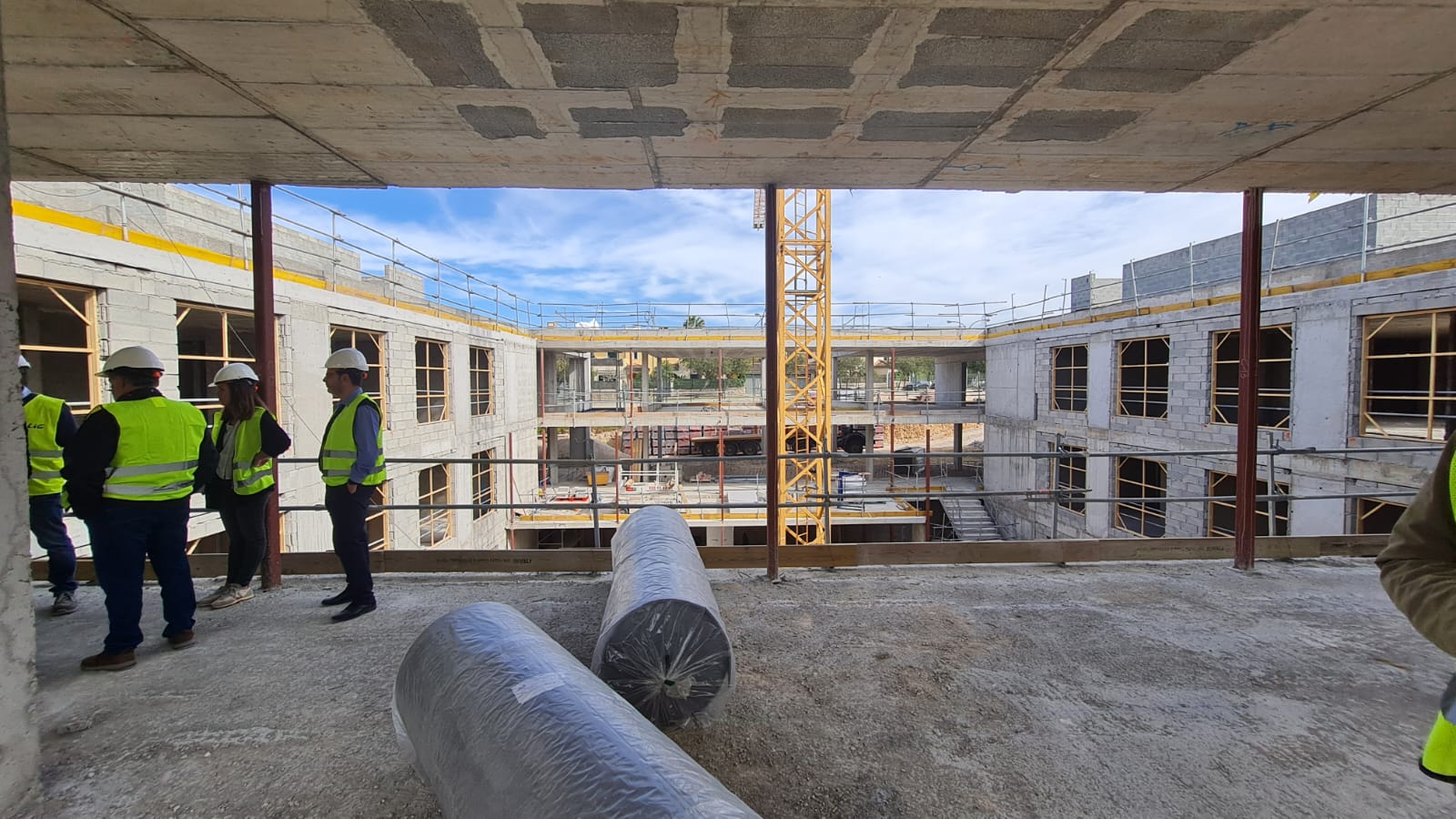\ It will have 120 places and will employ around a hundred workers when it is up and running.
\ The cost of the equipment amounts to 10.4 million euros, financed with European Next Generation funds.
TDB keeps you informed. Follow us on Facebook, Twitter and Instagram.
Residencia Son Dureta
Work on the “Residencia Son Dureta” long-stay centre for people in a situation of dependency, which is being carried out by the Regional Ministry of Social Affairs and Sports, will be completed by the end of the year. The new facility will have 120 places for dependent elderly people and will cost 10.4 million euros, financed by the European Next Generation funds from the Recovery, Transformation and Resilience Plan (MRR).
Once the works have been completed, the equipment will be transferred to the Consell de Mallorca to be put into operation. The Department of Social Affairs and Sports will continue to be linked through the financing of the places that will be incorporated into the Public Network of Care for Dependency. It is expected that the Regional Ministry will allocate around 5 million euros to finance the places.
At the moment, the entire three-storey structure has been erected and work is underway on the distribution of the partition walls. At the moment, work is also underway to install the air conditioning, plumbing and electrical installations, and work has begun on the exterior carpentry.
Today, the Councillor for Social Affairs and Sports, Fina Santiago, and the General Director of Facilities, Juanma Rosa, accompanied the architects MIBA Architects who have travelled to monitor the works. Also in attendance were the manager of the Consorcio de Recursos Sociosanitarios y Asistenciales, Juanma Martínez, and the heads of the company awarded the works, Levantina Ingenieria y Construcción SL.
The new model of small homes within the same space
This residence, like those currently being built by the Department of Social Affairs and Sports in other municipalities of the Balearic Islands, is designed to be as similar as possible to a home. The idea is to create small living modules that allow for more personalised attention. In addition, the Regional Ministry organises architectural competitions to create designs adapted to the environment and in each space that contribute to a better quality of care. The environmental quality and the optimisation of the dimensions are also improved, with a sustainable, social and popular commitment to the projects.
Son Dureta Project
This is a rectangular building on a surface area of 5,900 square metres, consisting of three floors, one of which is designed to have direct access to the Bellver forest. The facility is configured in six living modules to make each one as similar as possible to a home and offer the most personalised attention possible.
This new facility is added to the rest of the residences and day centres that are being built in the Balearic Islands to address the ageing of the population, the commitment to local services and care for dependency. According to the Councillor for Social Affairs and Sports, Fina Santiago, “never before has such a great effort been made to develop care for dependent persons and the commitment to new facilities. In eight years we have gone from 9,000 beneficiaries in 2015 to more than 21,000 beneficiaries by 2023. Mallorca is ageing and we must continue to invest in dependency care. There are currently 9 residences and 14-day centres in the pipeline. Of these, some have already been built, others are already in operation, others are being built, have an advanced architectural project or are in the process of being put out to tender. The important thing is that progress is made every term of office”, emphasised Councillor Fina Santiago, who also pointed out that not only has there been a quantitative and qualitative leap forward in terms of residences, but that, within dependency care, “other services have also been promoted and increased, such as home help, telecare and economic aid, a diverse range because as our needs change, we can adapt to one service or another”.
When it is up and running, it is expected to employ around a hundred workers.
